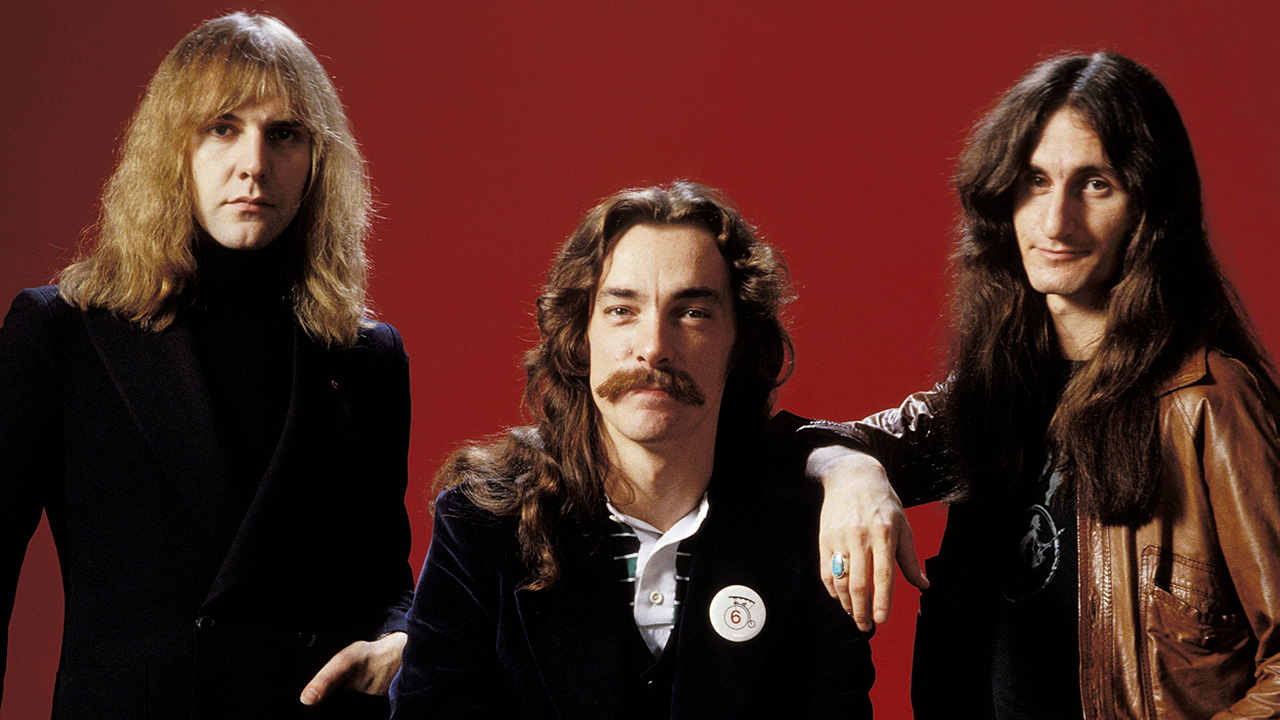
In 1978, Rush conducted an infamous interview with English music paper New Musical Express, printed in the March 4 edition of the weekly mag, during which journalist Barry Miles accused the band of promoting "proto fascism".
The slur came during a somewhat heated discussion over political philosophies and economics, sparked by the fact that Neil Peart, the band's drummer and lyricist, credited "the genius of Ayn Rand" in the sleevenotes to the trio's 1976 album 2112, having taken influence from the novelist's 1937 story Anthem. At one point in the feature, Miles uses the phrase 'Work makes us free' as a comment on Peart's arguments about capitalism, fully aware that this phrase - or more specifically its German language translation Arbeit macht frei - was displayed at the entrance to Auschwitz concentration camp.
"The thing is, these guys are advocating this stuff on stage and on record and no one even questions it," Miles wrote in the article. "No one is on their case. All the classic hallmarks of the right-wing are there: the pseudo-religious language... which extends right down to the touring crew: road masters instead of road managers; the use of a quasi-mystical symbol—the naked man confronting the red star of socialism (at least I suppose that’s what it’s supposed to be). It’s all there.
"They are actually very nice guys. They don’t sit there in jack boots pulling the wings off flies. They are polite, charming even, naïve—roaming the concert circuits preaching what to me seems like proto-fascism like a leper without a bell."
Miles' article caused serious offence to the band, not least to Geddy Lee, whose Polish parents, Manya (Mary) Rubenstein and Morris Weinrib, were both liberated from Nazi concentration camps (Bergen-Belsen and Dachau, respectively) in 1945, and had actually both been interned in Auschwitz as teenagers. And in a new interview with MOJO magazine, Lee shuts down the idea that his band were promoting the philosophies of which they were accused by Miles.
"It’s amazing how long that mud stuck," Lee tells writer James McNair. "Part of the way we used Rand’s inspiration was defiantly anti-totalitarianism, as played out in the sci-fi plot of 2112. And, fairly obviously, we were never fascists. Thatcherism was rising in Britain. The left were understandably freaked out, and I didn’t blame [Miles] for having the belief system he had. But to suggest that 2112 was suckering kids into a right-wing mantra with fascistic overtones was wrong-headed and irresponsible."
You can watch Lee discussing his parents' experiences in Nazi concentration camps in the emotional video below:







